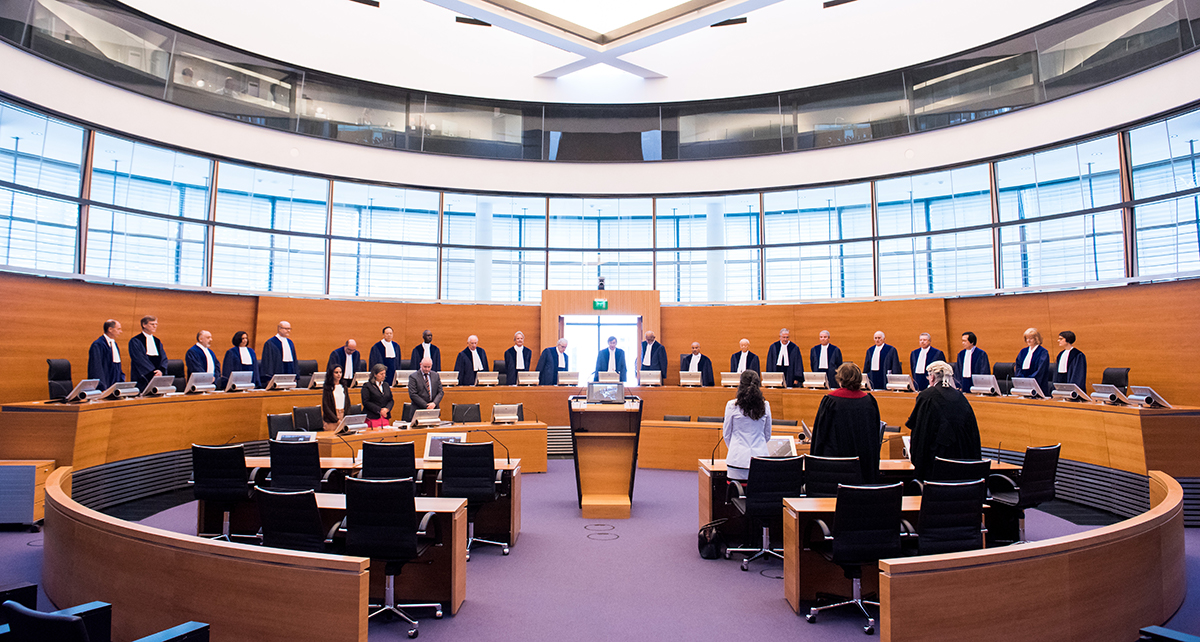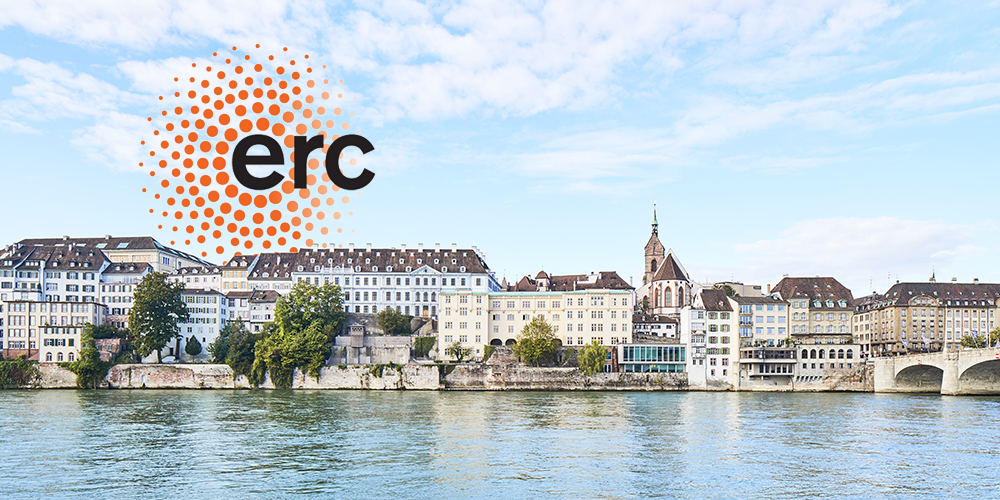Basel professor acting as judge ad hoc to the International Tribunal for the Law of the Sea
The International Tribunal for the Law of the Sea in Hamburg has ruled that Nigeria must release a Swiss tanker it has detained off its coast for more than 17 months. Switzerland appointed Anna Petrig, Professor of International Law at the University of Basel, as judge ad hoc for this case. This is the first time in the history of the UN tribunal that a woman has held this position.
17 July 2019
In January 2018, Nigeria arrested the San Padre Pio, a vessel flying the Swiss flag. The ship was to supply fuel to an offshore oil production platform off the coast of Nigeria. According to the Nigerian authorities, the transport violated domestic law. Ship, crew, and cargo were seized. In Switzerland’s view, the ship was not in Nigeria’s territorial waters and therefore Nigeria had no right to detain it.
In May 2019, Switzerland initiated arbitration proceedings in this case and also submitted a request for provisional measures to the International Tribunal for the Law of the Sea (ITLOS) in Hamburg. As the ITLOS has neither a permanent judge from Switzerland nor from Nigeria, both parties were allowed to appoint a judge ad hoc for this case. Switzerland appointed Prof. Dr. Anna Petrig as judge ad hoc. The professor of international law at the University of Basel is a sought-after worldwide expert on the subject of law of the sea.
A historic case
A few days ago, ITLOS decided on the provisional measures. It ruled largely in favor of Switzerland’s request and ordered Nigeria to release the San Padre Pio, its crew and cargo. In order to protect Nigeria’s rights, the tribunal has ordered Switzerland to post a bond or other financial security of USD 14 million. The ensuing arbitral tribunal will decide whether a payment must be made to Nigeria from this security.
"This is a historic case," says Professor Petrig. "Not only is this the very first time that a land-locked country has appeared before the International Tribunal for the Law of the Sea. The decision is also of a fundamental nature, as offshore uses in the so-called 'Exclusive Economic Zone' rapidly increase. For example, numerous offshore windfarms are being built as part of the energy transformation. With all these new uses of the sea, the question arises as to how far the respective powers of the coastal state and the flag state extend."
Controversy around the “Exclusive Economic Zone"
The Exclusive Economic Zone is a maritime zone situated between territorial waters and the high seas in which the coastal state enjoys certain sovereign rights but not full sovereignty. Among other things, coastal states are competent to regulate, monitor and enforce violations in the context of the exploitation and management of living and non-living resources. These include primarily fishing and the exploitation of mineral resources, such as oil.
Whether the supply of fuel for the operation of offshore platforms also falls under the regulatory power of the coastal state is controversial. Switzerland is of the opinion that the process is subject to freedom of navigation and does therefore not fall within the competence of the coastal state of Nigeria. The arbitral tribunal yet to be constituted, will decide on this question in the coming months.
First female judge ad hoc on ITLOS
The appointment of Anna Petrig marks the first time that a woman has been appointed as judge ad hoc at the ITLOS. Among the 21 permanent judges of the ITLOS, only three are women: in 2011, the Argentine Elsa Kelly was appointed to the bench, and in 2017 Neeru Chadha from India and Liesbeth Lijnzaad from the Netherlands were elected.
ITLOS was established by the 1982 Convention on the Law of the Sea – the so-called "Constitution of the Oceans". The UN tribunal is competent for adjudicating disputes arising from the Convention on the Law of the Sea, notably in provisional measures proceedings, as in this case.
Further information
Prof. Dr. Anna Petrig, University of Basel, Faculty of Law, Tel. +41 61 207 25 32, E-Mail: anna.petrig@unibas.ch
Anna Petrig
Prof. Dr. Anna Petrig has been intensely involved with law of the sea matters for more than ten years. In 2008, she initiated the Sea Piracy Project at the Max Planck Institute for Foreign and International Criminal Law in Freiburg (Germany) and headed it for several years. She received her doctorate from the University of Basel in 2013 on human rights and law enforcement at sea. Petrig has lectured on law of the sea-related issues at universities and research centers throughout Europe and Japan; she has discussed her research within the International Maritime Organization of the United Nations and NATO bodies, amongst others.





